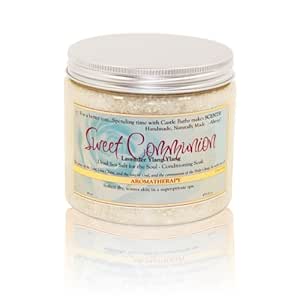
Aromatherapy baths are a deeply relaxing and therapeutic way to unwind and rejuvenate. They offer more than just a soothing soak; they harness the power of essential oils to promote well-being on a physical and mental level. Feeling stressed? Tired? Looking for a way to de-stress and improve your sleep? Aromatherapy baths might be the perfect solution. This article will explore the world of aromatherapy baths, delving into their numerous benefits and providing practical tips for creating your own relaxing and therapeutic bath experience. We will discuss the diverse range of essential oils and their properties, as well as offer insights into how to combine them for maximum effect. Finally, we’ll address some frequently asked questions regarding aromatherapy bath safety and effectiveness.
Unveiling the Therapeutic Power of Aromatherapy Baths
Understanding the Basics
Aromatherapy baths combine the ancient practice of aromatherapy with the simple pleasure of bathing. Instead of just water, essential oils are added to the bathwater, releasing their unique fragrances and potentially potent healing properties into the air and skin. These carefully selected oils can promote a variety of benefits, from relaxation and stress reduction to improved sleep quality and skin health. This practice, rooted in ancient traditions, utilizes the power of natural compounds to promote well-being. It’s a gentle way to nourish your body, mind, and soul. Aromatherapy baths are a popular self-care choice for those seeking a holistic approach to relaxation and wellness.
Selecting the Right Essential Oils
Exploring Different Oils and Their Properties
Choosing the right essential oils for your aromatherapy bath is crucial. Each oil carries unique properties and benefits. For instance, lavender is known for its calming and sleep-inducing properties, making it ideal for reducing stress and promoting restful sleep. Chamomile, with its gentle floral scent, can help calm the mind and soothe frayed nerves. Eucalyptus, on the other hand, is often used to clear congestion and promote respiratory health. Understanding the individual qualities of different oils allows you to select the perfect blend for your specific needs. Research is key. Consider factors like the desired mood, any potential health concerns, and the personal preferences you have.
Related Post : are aromatherapy diffusers bad for you
Creating Your Perfect Aromatherapy Bath Recipe
Blending Oils for Enhanced Benefits
Once you’ve chosen your essential oils, it’s time to create your personalized aromatherapy bath blend. Start by adding a few drops of each chosen oil to a carrier oil, such as jojoba or almond oil, to dilute them. This is important for preventing skin irritation. Then, carefully pour the diluted mixture into your bathwater. Experiment with different combinations to discover your ideal recipe. For example, a relaxing bath might include lavender and chamomile, while a more invigorating bath might incorporate peppermint and eucalyptus. Don’t be afraid to try different combinations to discover what works best for you!
Experiencing the Holistic Benefits
Exploring the Mind-Body Connection
Aromatherapy baths offer more than just a pleasant soak; they cultivate a sense of well-being that extends beyond the physical. The warm water, combined with the soothing aroma of essential oils, can help to relax muscles, reduce tension, and promote a sense of calm and tranquility. Regular use of aromatherapy baths can lead to improved sleep quality, reduced stress, and a deeper connection with your inner self. This holistic approach considers the interconnectedness of mind, body, and spirit, offering a unique pathway to wellness.
Incorporating Aromatherapy Baths into Your Routine
Building a Self-Care Ritual
Integrating aromatherapy baths into your daily routine can elevate your self-care practices. Consider scheduling a bath time specifically for relaxation and rejuvenation. Dim the lights, light a candle, and play calming music to create a tranquil atmosphere. By incorporating these elements, you can transform your bath time into a truly restorative experience. This practice can significantly enhance your overall well-being and promote a greater sense of calm and peace in your daily life.
Frequently Asked Questions
How Long Should I Soak in an Aromatherapy Bath?
Soaking in an aromatherapy bath for 15-20 minutes is generally recommended. This timeframe provides ample time for the essential oils to work their magic and allows the body and mind to fully relax. Avoid prolonged soaking, especially if you have any underlying health concerns. Listen to your body and adapt the duration as needed. It’s crucial to monitor your well-being and make adjustments to find what feels best for you.
Are There Any Precautions to Consider When Using Aromatherapy Baths?
Always dilute essential oils with a carrier oil before adding them to the bathwater. This helps prevent skin irritation. Some individuals may be sensitive to certain essential oils; therefore, it’s always a good idea to perform a patch test on a small area of skin before using the oil in a bath. If you have any pre-existing medical conditions, consult with a healthcare professional before using aromatherapy baths.
In conclusion, aromatherapy baths offer a wonderful way to unwind and rejuvenate. By incorporating essential oils into your bathing routine, you can experience a host of physical and mental benefits. From relaxation and stress reduction to improved sleep and skin health, the benefits are numerous. Next time you need a moment of peace and self-care, consider the therapeutic power of aromatherapy baths. Don’t just take a bath, experience a spa-like treatment in your own home! Explore the various essential oils available and experiment with different combinations to discover your perfect aromatherapy bath recipe.